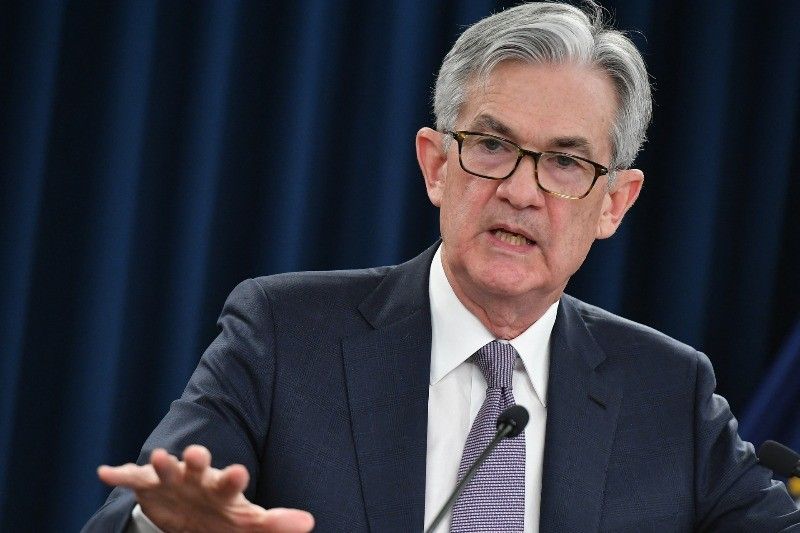'Markets be damned!': Fed standing firm on inflation fears

WASHINGTON, United States — Skittish investors have see-sawed between celebration about the expected US economic recovery and nail-biting over a possible price spiral, but the Federal Reserve is standing firm on keeping interest rates low.
In the balance between allowing faster growth -- and rising prices -- in order to restore some of the more than nine million jobs still missing due to the Covid-19 pandemic, Fed Chair Jerome Powell's message has been clear: he wants to see more people back to work.
Analysts are expecting the Fed's policy-setting Federal Open Market Committee (FOMC) to maintain its very "dovish" stance when it holds its two-day policy meeting starting Tuesday.
Powell on Wednesday is expected to stress once again that the Fed is willing to accept higher inflation to get back to full employment, a goal that took a decade to achieve following the 2008 global financial crisis.
"I think it's 'markets be damned' at this point," said Robert Frick of Navy Federal Credit Union.
"The Fed has said that until the real improvement in employment and in the economy, they're not going to budge," Frick told AFP. "I really don't think they're going to waver."
From a 50-year low of 3.5 percent unemployment before the pandemic lockdowns began in early 2020, the jobless rate spiked as millions of workers were sent home, but gradually fell back to 6.2 percent in February amid business reopenings.
As vaccine rollouts have picked up and President Joe Biden signed a massive $1.9 trillion stimulus package, boosting the chances the world's largest economy can soon reopen, investors have begun to fear an inflationary spiral.
That is reflected in the spike in government debt yields, particularly on 10-year Treasury notes, a canary in the coal mine for coming price increases.
But Treasury Secretary Janet Yellen on Sunday played down such fears, telling ABC's "This Week" she saw only a "small risk of inflation."
A former chair of the Federal Reserve, Yellen said she "absolutely" does not expect a return to the runaway inflation of the 1970s. And if inflation should surge, she said, "We have the tools to address it."
Hot but not boiling
While the jump in Treasury yields back to early 2020 levels could be viewed as something of a market freak-out, there are real-world consequences, since lending rates for home mortgages and car loans are linked to them.
Mortgage rates have begun to creep up, which could price some buyers out of an already-hot housing market, while existing homeowners will find it harder to refinance their loans, said Kathy Bostjancic of Oxford Economics.
Inflation is expected to rebound, as the economic engine revs up, especially compared to the depressed prices seen during the pandemic closures, but any sharp spikes are expected to be temporary.
"The reopening economy is going to be turbocharged by this $1.9 trillion fiscal stimulus, so there's no doubt" inflation will rise, Bostjancic told AFP.
The critical question is how high "and for how long," she said.
"It's going to feel warmer, but we don't think it's an overheating situation."
Over more than a decade inflation has rarely pushed above the Fed's 2.0 percent target, and the central bank's preferred price measure was up only 1.5 percent in January compared to a year earlier.
Bostjancic and Frick agree with many economists who say there is a lot of slack in the economy which will dampen price increases.
Signal to markets
Powell has acknowledged that prices will move up but he pledged the Fed would not withdraw stimulus until the economy had returned to maximum employment -- which is unlikely this year -- and inflation was both above the 2.0 percent goal and on track to remain there "for some time."
"We're not intending to raise interest rates until we see those conditions fulfilled," Powell said.
However, the Fed is not impervious to the market jitters, and Powell could try again to calm inflation fears by sending a stronger signal that the central bank will use its tools to address any worrying price increases or bond yield spikes.
While he has been noncommittal about specifics he could provide more details in his press conference Wednesday, including on his willingness to change the mix of debt the Fed buys each month.
And Bostjancic notes the Fed could make another technical move that could ease pressure on yields, by extending the pandemic exemption on banks holding of Treasuries without having to have a cash buffer.
That exemption expires at the end of the month.
- Latest
- Trending
























